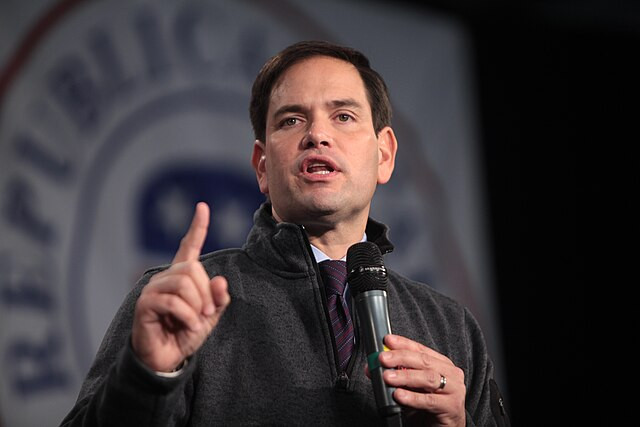U.S. Secretary of State Marco Rubio sharply criticized Germany on Friday following its decision to classify the far-right Alternative for Germany (AfD) party as an extremist organization, intensifying tensions between Washington and Berlin over domestic surveillance and political expression.
Germany's Federal Office for the Protection of the Constitution (BfV), its domestic intelligence service, declared the AfD a "proven right-wing extremist endeavor," a move that grants authorities expanded powers to monitor the party's activities, including wiretaps and infiltration. The designation, finalized after a three-year investigation, marks the first time a party with federal parliamentary representation has been officially labeled extremist in modern German history.
"Germany just gave its spy agency new powers to surveil the opposition. That's not democracy-it's tyranny in disguise," Rubio posted on X, formerly Twitter. "What is truly extremist is not the popular AfD-which took second in the recent election-but rather the establishment's deadly open border immigration policies that the AfD opposes. Germany should reverse course."
The AfD secured 152 seats in the February elections, capturing 20.8% of the national vote, its best showing to date. Despite the result, mainstream parties formed a coalition to exclude the group from government. The BfV's 1,000-page report accuses AfD leaders of undermining Germany's constitutional principles, particularly human dignity and democratic inclusion.
BfV vice presidents Sinan Selen and Silke Willems stated: "The AfD's ethnic and descent-based understanding of the people, which devalues entire population groups in Germany and violates their human dignity," citing the party's consistent anti-immigrant and anti-Muslim rhetoric.
AfD leaders Alice Weidel and Tino Chrupalla responded that the designation constitutes "deliberate interference in the democratic process of forming political will" and vowed to challenge it in court. "The AfD will continue to legally challenge these defamatory actions that endanger democracy," they said.
Several high-profile figures within the Trump administration have backed the AfD. U.S. Vice President JD Vance met with Weidel at the Munich Security Conference in February, where he dismissed efforts by other parties to isolate the group. "There is no room for firewalls," Vance said during his appearance.
Billionaire Elon Musk, who oversees the federal Department of Government Efficiency (DOGE), has openly supported the party. In December, Musk endorsed AfD on X and later hosted a 75-minute video discussion with Weidel. "Banning the centrist AfD, Germany's most popular party, would be an extreme attack on democracy," Musk wrote on Friday.
Weidel said Musk personally called to congratulate her after February's election and spoke at an AfD campaign event in January. Trump himself invited Weidel to his inauguration, signaling longstanding ties between the AfD and the former president's orbit.
The AfD, founded in 2013, has expanded from a Eurosceptic platform to embrace strong anti-immigration and nationalist positions. The party has proposed mass deportations, criticized Islam, and advocated for traditional Christian values, claiming to reflect the will of the German electorate.






